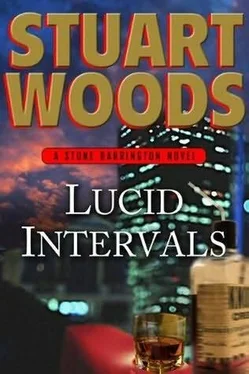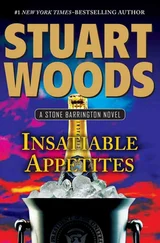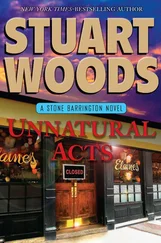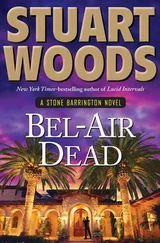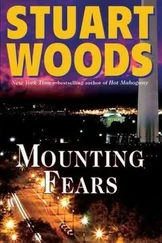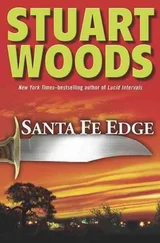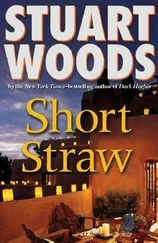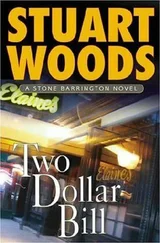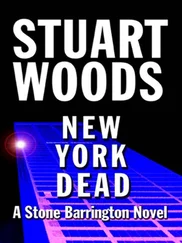“Please take a seat,” the man said. “Someone will come for you.” He departed through the door they had entered.
Stone sat down and recognized a Vivaldi sonata for flute wafting through invisible speakers, and a stack of magazines was on a table next to him. He picked up the top one and found himself leafing through the current issue of Country Life, perusing ads for houses in Kent, Sussex, Devon and other counties. He had about settled on a charming cottage by the sea in Cornwall when a door on the other side of the room opened and a middle-aged woman in a tweed suit stepped into the room.
“Mr. Barrington, I presume?” she said.
Stone rose. “How could I possibly be anyone else?” he asked.
She tried not to laugh. “This way, please.” She led him through what was apparently her office and to a set of double mahogany doors, where she knocked twice.
“Come!” a female voice said.
The woman opened the door and stood back for Stone to enter. Felicity, who was seated at an antique desk, stood up. “Ah, Mr. Barrington,” she said, extending her hand.
Stone shook it. “Ah, Dame Felicity,” he said.
“That will be all, Heather,” Felicity said, “until the other gentleman arrives.”
Heather closed the door, and Felicity motioned for Stone to sit down. He did so and was about to speak, when she held up a hand. “I trust you’ve been well since our last meeting,” she said, tapping an ear with a fingertip.
So they were being recorded. “Very well, indeed, Dame Felicity, and may I congratulate you on your honor?”
She blushed a little. “Thank you,” she said. “It comes with the job.”
“And what job is that?” Stone asked mischievously.
“Civil service,” she replied, making a face. They were not being photographed. Then there was another knock at the door.
“Come!” Dame Felicity said.
The door opened, and a slight, gray-haired man in a very good but not new suit entered. “Good morning, Dame Felicity,” he said.
“Good morning,” she said, rising and shaking his hand. “May I present Mr. Barrington?”
The man turned and shook Stone’s hand. “Smith,” he said.
“How do you do, Mr. Smith?” Stone asked.
“Very well, thank you.”
“Please sit, gentlemen,” Felicity said.
They sat.
“Mr. Barrington, Mr. Smith is in possession of more knowledge of Stanley Whitestone than I, being his contemporary. I thought it might be useful for the two of you to meet.”
“I hope so,” Stone replied.
“Mr. Barrington,” Smith said, “what questions do you have regarding Mr. Whitestone?”
“Why don’t we start at the beginning?” Stone said. “Please tell me in as much detail as possible of the first time you met Stanley Whitestone.”
Smith looked at Felicity and got a nod from her, then turned back to Stone and began.
Smith gazed at the ceiling for a moment. “We were nine years old,” he said, “and we were at Eton. He impressed me immediately.”
“How so?” Stone asked.
“He was very bright and quick and had an acerbic wit, especially for a nine-year-old.”
“Go on.”
“He excelled in his studies and on the playing field, both without seeming to try very hard.”
Stone knew that, among the British, not seeming to try very hard was admirable. “What sports did he play?”
“Cricket, track-he was a sprinter-and he was good on horse-back. I believe he had grown up with his own horse.”
“Anything else from the Eton years that might be of help in identifying him?”
Smith thought for a moment. “He suffered a fall from a horse and acquired a cut on his forehead,” he said, pointing to a spot high over his right eyebrow. “Needed stitches. Left a thin line of a scar about two inches long.”
Stone took the photograph of Whitestone from his pocket, looked at it and handed it to Smith. “Do you see it here?”
Smith checked. “No,” he said.
“He had it removed, then?”
“Possibly. Or it may have moved into his hairline as he grew up. I can’t think of anything else that might identify him now. After we left Eton I was at Oxford, and he was at Cambridge. I saw him two or three times at parties in London, then not again until I… became employed as a civil servant.”
“Did you join the service at the same time?”
“No, I did two years of National Service, which he seemed to have avoided, so he was senior to me when I came aboard.”
Felicity spoke up. “Whitestone attended Cambridge as a King’s Scholar,” she said, “after being recruited his first semester. It was arranged that he did his National Service with us.”
Smith seemed a bit miffed. “I rather thought it was something like that,” he said. “I was recruited out of the army.”
Stone kept himself from laughing at this display of jealousy. “What were your impressions of him at the time of your joining?”
“Much the same as at Eton,” Smith said, “only by that time he had acquired considerable charm. Perhaps that happened at Cambridge.”
Felicity consulted a file on her desk. “Whitestone joined the theater group there and became adept at comedy. A number of his contemporaries went on to become professional actors, and half a dozen of them did very well. He had that opportunity but was already committed to us.”
“Then I would assume that he learned about makeup and disguise in the theater group,” Stone said.
“A logical assumption,” Felicity replied. “He made good use of that knowledge in the field.”
Stone turned back to Smith. “Why did you dislike Whitestone?” he asked.
“Dislike?” Smith asked.
“All right, hate,” Stone said.
Smith said nothing.
“Answer him,” Felicity said.
“I tend to distrust people who have too much charm,” said Smith, who seemed to have very little himself.
“Did he advance in the service faster than you?” Stone asked.
“I told you, he was two years ahead of me; naturally, he would have been promoted sooner.”
“Did your record of advancement match his?”
Smith scratched an itch on his forehead. “I don’t think anyone advanced as quickly as he.”
“Was he considered a candidate for… top management?” Stone asked.
“I would have had to be above him to know that,” Smith said, looking pointedly at Felicity.
“Probably,” Felicity said. “I was junior to him, but-to use an American term-the scuttlebutt was that he was headed for the top.”
“Did he leave abruptly?” Stone asked.
Felicity answered. “He didn’t turn up at the office one day, and later that morning the interoffice post delivered a one-sentence letter of resignation to the director.”
“Have you seen the letter?” Stone asked.
“It’s in his file.”
“Was it profane or disrespectful?”
“I believe he told the director to get stuffed.”
Stone couldn’t help laughing. “Mr. Smith, where were you at the time of Whitestone’s… departure?”
“I was working in his section,” Smith replied.
“And what section was that?”
Felicity interrupted. “I don’t believe that’s relevant.”
“Let me rephrase,” Stone said. “Was he doing work that could have benefited him financially if he had used the information he had gained in his work in the private sector?”
“Oh, yes,” she replied. “I thought you understood that.”
“Was his work of a financial nature?”
Felicity stared at the ceiling. “I can’t think of a way to answer that question without telling you more than you need to know to accomplish your task.”
“I’ll try again,” Stone said. “Given his experience, might he have gone to work in the financial industry? In the City, perhaps?”
Читать дальше
